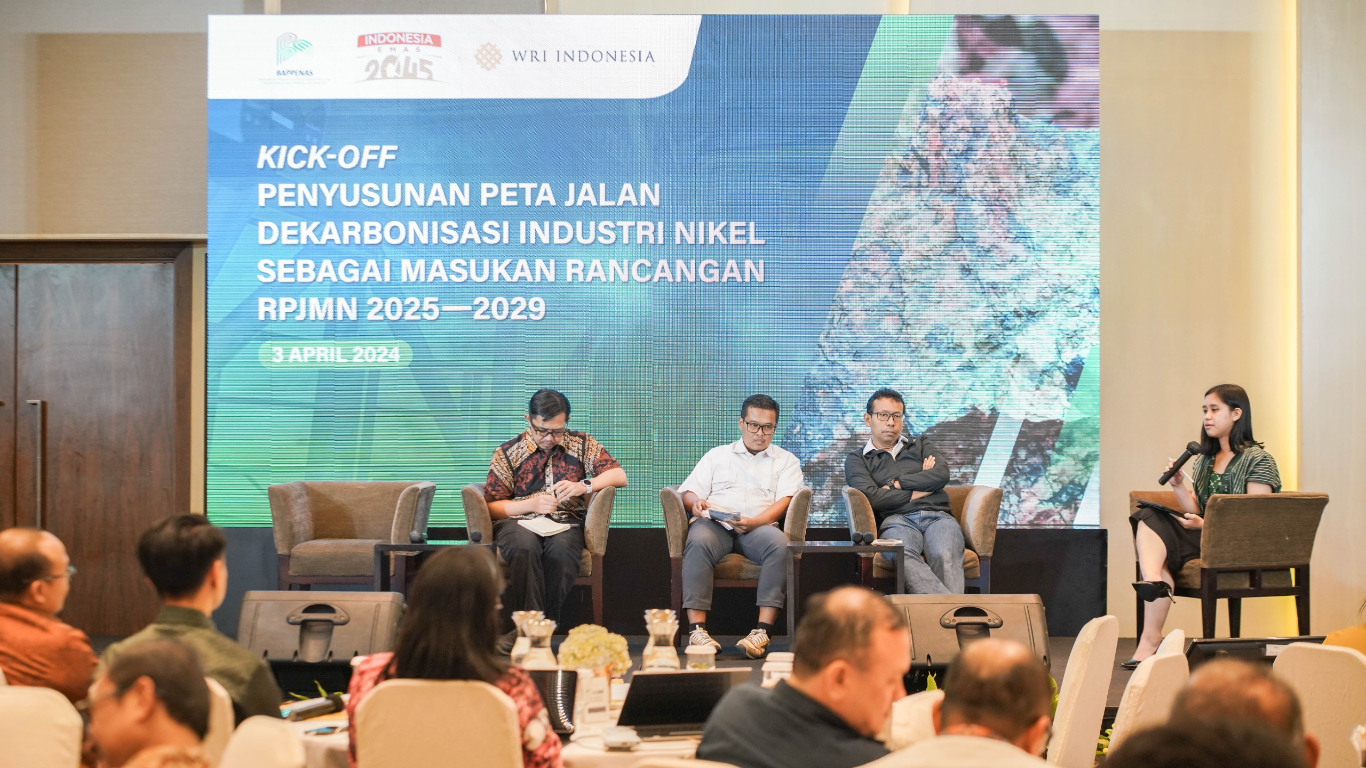Bappenas & WRI Indonesia Draft Nickel Industry Decarbonization Roadmap
Development News - Wed, 03 April 2024

JAKARTA – The Ministry of National Development Planning/Bappenas, together with the World Resources Institute Indonesia (WRI Indonesia) held the "Kick Off for Drafting the Decarbonization Roadmap for the Nickel Industry as Input for the 2025-2029 National Medium-Term Development Plan (RPJMN)" discussion event on Wednesday (3/4).
The agenda, which involved various stakeholders such as policymakers, industry representatives, academics, and relevant associations, signifies the collaboration between the Ministry of National Development Planning/Bappenas and WRI Indonesia in drafting the decarbonization roadmap for the nickel industry.
"The drafting of the decarbonization roadmap for the nickel industry will be carried out by involving all stakeholders, ranging from the private sector, various ministries/technical agencies, to academia, to discuss a number of challenges and the application of solutions for sustainable nickel industry. In the process, the Ministry of National Development Planning/Bappenas welcomes the collaboration with WRI Indonesia as an independent research institution that will provide comprehensive contributions. This includes research, data analysis, and policy recommendation design to support emissions reduction throughout the nickel industry supply chain in Indonesia," stated Bappenas’ Deputy for Maritime Affairs and Natural Resources, Vivi Yulaswati.
Decarbonizing the nickel industry is believed to significantly contribute to the economic transformation agenda in line with the Golden Indonesia 2045 Vision. On the other hand, economic transformation is also targeted as a key strategy in medium-term planning documents to lift Indonesia out of the middle-income trap. The decarbonization roadmap can help further align economic ambitions with achieving emission reduction targets in accordance with Indonesia's commitments in the Paris Agreement. This can be achieved through the creation of a sustainable nickel industry ecosystem, considering environmental and ethical aspects, along with the mission to generate high value and compete in the global market further.
"As a global player, Indonesia's nickel utilization must be based on low-carbon development principles. Indonesia needs to create productive industries while implementing low-emission production processes. Accompanying the implementation of nickel downstreaming with decarbonization is crucial because it not only can accelerate national economic growth but also enhance competitiveness in an increasingly green global market. Therefore, the decarbonization roadmap initiated by the Ministry of National Development Planning/Bappenas with the support of WRI Indonesia is targeted to serve as a guide in making nickel decarbonization a key to Indonesia's and the world's energy transition," concluded WRI Indonesia’s Director of Climate, Energy, Cities, and Oceans Programs, Almo Pradana.
